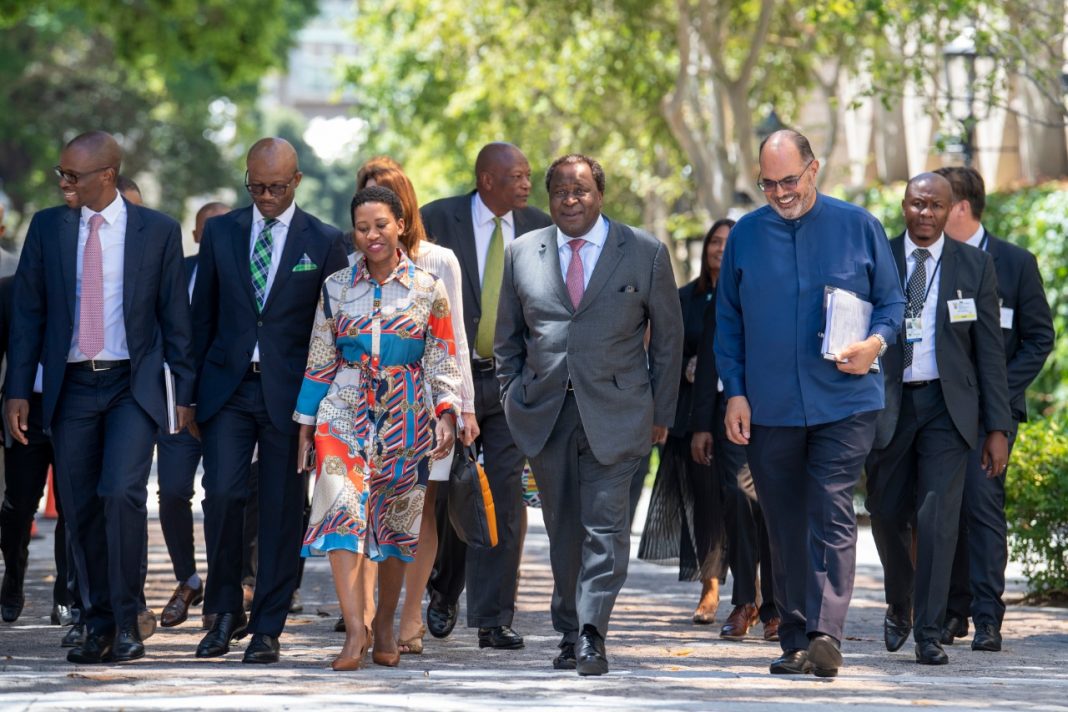LUCAS LEDWABA
THE AILING Land Bank, which recently requested a R5 billion recapitalisation to address capital buffers and advance its development mandate, has had part of its wish granted.
Finance Minister Tito Mboweni announced a whopping R3bn recapitalisation grant for the bank during his supplementary adjustment budget speech on Wednesday.
“This Bank holds 29 per cent of South Africa’s agricultural debt. The National Treasury is supporting the Land Bank find a solution to its default and craft a long‐term restructuring plan,” Mboweni announced.
It was feared that the total collapse of the bank would hit black farmers harder as they are shunned by the large commercial banks, although the Land Bank spend on the sector amounted to just 20%.
However, Mboweni’s announcement may have hit the right chord with the Agri SA, which ahead of the speech said it was hoping for support for the Land Bank.
Agriculture is a key sector to unlock economic growth, tied with policy certainty and a more conducive economic environment,” said Nicol Jansen, Agri SA Chairman of the Centre of Excellence:Economics and Trade.
“Land Bank is a significant player in the agricultural sector, with a strong market share of 29% of South Africa’s agricultural debt. The bank is an important line of credit for agribusinesses to finance the buy-in of harvests at silos and for production credit which the bank channels to farmers via agribusinesses. In this context, especially in terms of food security, the Land Bank should receive government support to resolve the bank’s current liquidity constraints,” the organisation which represents thousands of commercial farmers said in a statement.
The Land Bank provides financial services to the commercial farming sector and to agri-business.
Part of its core mandate includes providing finance for emerging farmers “in pursuit of the equitable ownership of land, agrarian reform and land distribution.”
But last month the Land Bank presented its woes, which include a shortfall of billions in unpaid loans and downgrades by credit agency Moody’s to the standing committee on appropriations.
Among its troubles include being downgraded three times, in January, February and April last year.
The committee noted the significance of the bank’s developmental mandate, especially for emerging black farmers, women, youth and people with disabilities in agriculture.
It also said, however, that access to funds remain a challenge for black farmers and encouraged officials of the Land Bank to pay closer scrutiny to this.
The bank revealed in its presentation to the committee that it had made significant effort to grow the Development and Transformational Loan Book by R6.6 billion in the last five years.
However, it said that supporting development and transformation “has proven to be a challenging task because “the cost of the bank’s funding is based on commercial interest rates from the capital markets; and the strict financial covenants that the bank has to adhere to.”
The bank said in its presentation to the committee its definition of development clients refers to smallholder farmers who are usually new entrants with an annual turnover of between R50 000 and R1million, and medium-scale commercial producers with an annual turnover ranging between R1 million and R10 million.
Agriculture is considered the least transformed industry owing to challenges resulting from the land reform process which has been plagued by slow transfer of land into black hands.
In February the Land Bank announced the appointment of Ayanda Kanana as chief executive officer.
Credit rating agency Moody’s cited one of the reasons for its decision as the delayed appointment of a permanent chief executive by the bank.
(Compiled by Inside Politics staff)



